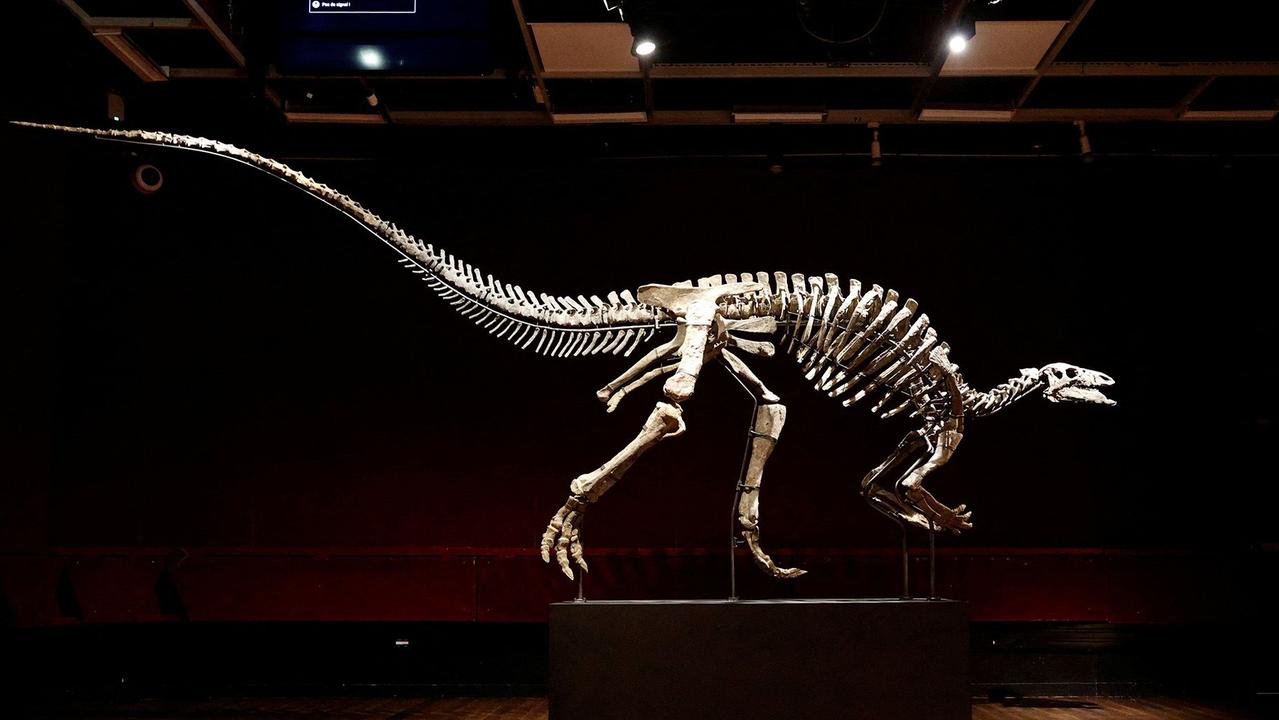[ad_1] A 150 million-year-old dinosaur skeleton named Barry will be put up for sale in Paris next month. The two-metres-tall, five-metres-long Campt
[ad_1]
A 150 million-year-old dinosaur skeleton named Barry will be put up for sale in Paris next month.
The two-metres-tall, five-metres-long Camptosaurus dates from the late Jurassic period. It is an adult specimen from the Iguanodontidae family of herbivores, which is one of the earliest groups of dinosaurs ever discovered.
The skeleton was discovered in the US state of Wyoming in the 1990s and initially restored by palaeontologist Barry James, from whom it got its name.
It’s expected to sell for up to €1.2 million ($A1.9 million) when it goes on sale on October 20.
Italian laboratory Zoic, which acquired Barry last year, has done further restoration work on the skeleton.
“It is an extremely well-preserved specimen, which is quite rare,” said Alexandre Giquello, from Paris auction house Drouot, where the sale will take place.
It comprises of a very high percentage of original bone, with more than 80 per cent of the specimen being intact. Barry’s skull is particularly well-preserved, with more than 90 per cent of it still remaining.
Dinosaur specimens are rare on the art market, with no more than a handful of sales each year worldwide.
But some experts have raised concerns about dinosaur skeletons ending up in private collections, where they may be mistreated and generally can’t be enjoyed by the public.
In April, a Tyrannosaurus rex skeleton named 293 Trinity was sold at auction for the first time in Europe, nabbing an extraordinary 5.55 million Swiss francs ($A9.5 million).
Steve Brusatte, a dinosaur expert at Edinburgh University, told the BBC at the time he was concerned by the sale.
“Most museums can’t compete with the deep pockets of the oligarchs and the super-rich,” he said.
“What worries me is that these very rare dinosaur skeletons, which are scientifically very valuable and are important for education and public engagement disappear into the vaults of private collectors which means that they are not available for public display.”
But Dennis Hansen of the Zoological Museum in Zurich said he believed many privately owned dinosaur specimens will end up being available to the public.
“I see it the same way as art. Art historians would like every single important painting to be available in the public ream, but experience shows that sooner or later it ends up in the public domain,” Dr Hansen said.
Get in touch — chloe.whelan@news.com.au
[ad_2]
Source link



COMMENTS